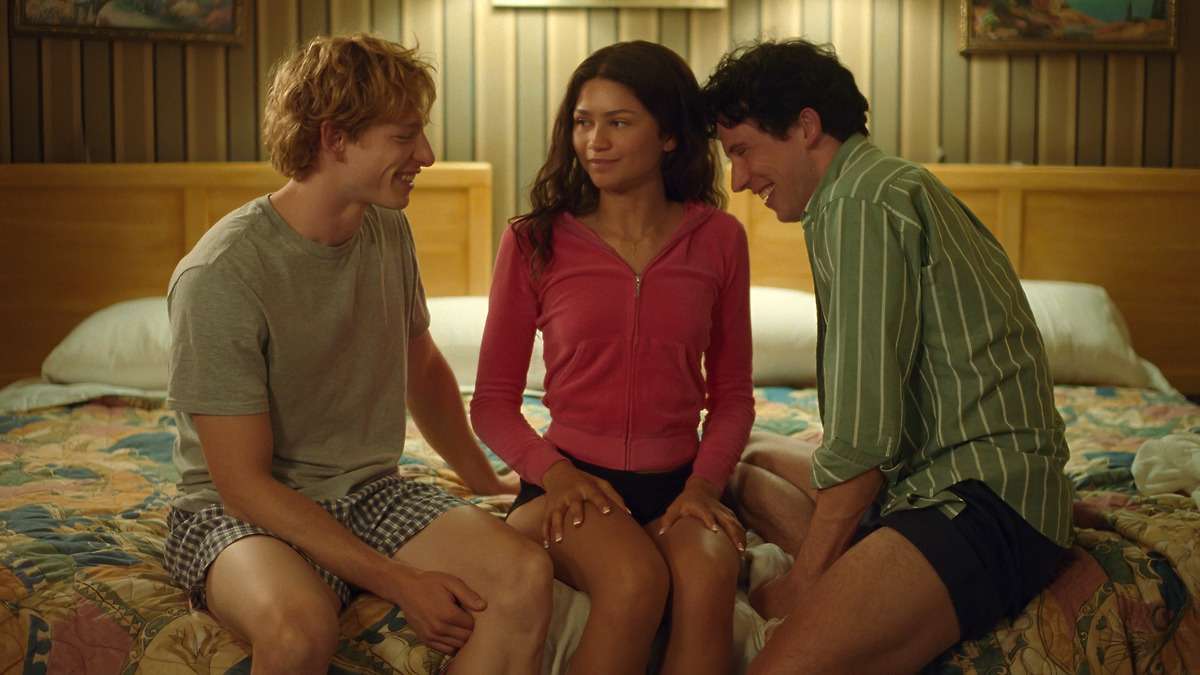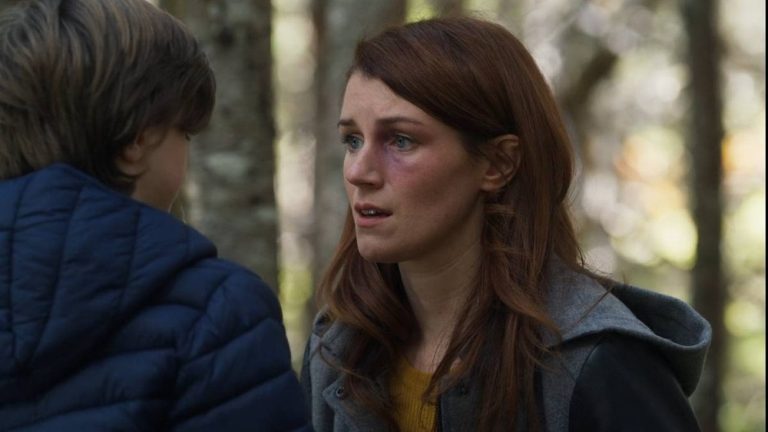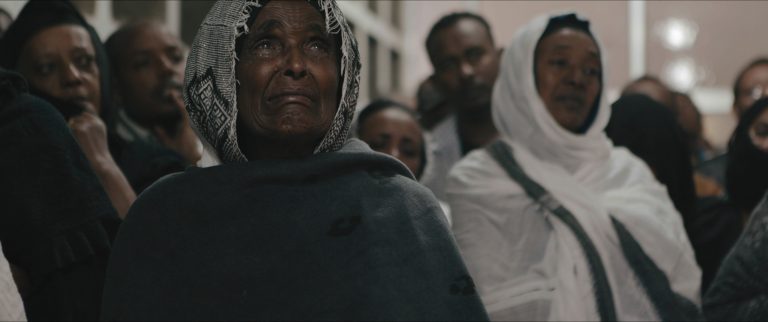Almost anyone, from the most qualified anthropologist to the sleaziest R&B singer, will assert to you that the human body is a work of art. Film directors are no exception, but while a fair share of them have made it their artistic mission to capture curved neckbones and dripping kneecaps with the same ferocity as an exploding mineshaft, few have earned quite as much sexual tension from the mere insinuation of bodies touching as Luca Guadagnino. “Challengers”—a film dedicated entirely to bodies in constant motion with nowhere concrete to take them—may just be the director’s most aggressive work in that respect, if only for the sheer vigor in how those sweaty bodies charge the empty spaces between them.
This isn’t to suggest that “Challengers” doesn’t feature a fair bit of much-anticipated skin-to-sweaty-skin contact, but Guadagnino’s signature of showing us the prize only to enhance its allure by keeping it just beyond our reach is a skill applied more resolutely here than perhaps ever before. Some of Luca’s romances are unattainable because the bodies in question are from different worlds, while others are unattainable because the bodies in question are from precisely the same world, driven by the consumption of other bodies. “Challengers” is a romance that feels unattainable precisely because everybody (every body…) involved is feeding off one another in ways that they themselves can neither understand nor resist.
Justin Kuritzkes’s nimble screenplay jumps back and forth across multiple interlocked timeframes to unpack the seismic magnetism of a trio of tennis players with varying degrees of investment in the sport… and each other. Tashi Duncan (Zendaya at her most commanding) is a rising tennis star so seductive in her utter apathy towards anything but the game that she and her sport-ready physique can’t help but attract lifelong pals Art (Mike Faist) and Patrick (Josh O’Connor, finally permitted to crack a smile). The attraction is mutual and constant but never quite consistent in who Tashi might prefer of the two at any given time. “Challengers” may begin at the present moment in which Tashi and Art are married with a child, but the constant shifts over the preceding 13 years leave no room for certainty and all the room for steamy interpersonal intrigue.
This is where Guadagnino finds himself most comfortable as a guiding force, as this precise mixture of continuous but conflicting attraction finds its deepest pockets of engagement when the feelings are mutually held but not mutually committed. There’s no doubt that in a world without the game of tennis wedging itself between them, these three would be dropping their pants and locking themselves away in their hotel room, making their lack of functioning A/C an even greater issue. At the same time, Guadagnino has us just as sure that, without that net cast across the court dividing them, they’d have no reason to assume that carnal desire would move anywhere beyond the point of a decently memorable but distant memory.

Then again, the brilliance of Kuritzkes’s script lies precisely in the glaring realization that Tashi, Art, and Patrick may all be better served as human beings without this long-standing sexual tension driving them to get three inches from each others’ drenched faces. Do they deserve better? It’s hard to tell by the time “Challengers” unravels its timeline with every petty instance between this trio, as Guadagnino and his stars hold no qualms about removing a conventional sense of likeability from these characters.
If the three leads of the film were somehow in need of a director to make them look better, Guadagnino would certainly be the one to do it, but Zendaya, Faist, and O’Connor drum up just as much charisma from their chiseled figures as they do from the impressive balancing act proving that sometimes—and stay with me on this—beautiful people can, in fact, be ugly on the inside. Zendaya, especially, is an absolute force of driven domination who brings a needed sincerity to Tashi’s underhanded psychological tactics, masking a need for self-control under an outward need for control of others. Faist and O’Connor, meanwhile, face the brunt of these head games and come out the other side proving themselves just as willing to stoop to floor level if that’s what it takes to get the ball to the other end of the court.
Through all of this, Guadagnino’s bravura direction ensures that “Challengers” maintains its riveting pace along a potentially troublesome and repetitive structure. The man has always known how to direct—or, at the very least, how to try and place the camera in unorthodox positions—but here, he’s playing in a different league entirely. With the help of his (and, un/surprisingly enough, Apichatpong Weerasethakul’s) longtime cinematographer Sayomphu Mukdiphrom, Guadagnino treats the tennis court and the bedroom alike as if Park Chan-wook were standing right behind his chair holding a piano wire; he can’t afford to let anyone else out-stylize him, even if that means off-putting edits, tennis ball POV shots, and beads of Faist’s sweat literally dripping onto the lens.
While not a single genital is even seen in “Challengers” (aside from those floating by in the background of a men’s locker room), the palpable coital anticipation is present in every scene like a thick fog, obscuring everyone from the bigger picture. Only in the case of this film’s subjects, that thick, damp fog of sex and victory is precisely what centers their focus; whether or not that centering is achieved in any sort of personal or spiritual sense is another question entirely, and it’s one that Luca Guadagnino and his team are content to answer by keeping quiet. Just shut up and grab your racket.



![A Place in the Field [2022] ‘SBIFF’ Review: A Beautifully Shot, but Predictable, Roadtrip Drama To Address Mental Health in Veterans](https://79468c92.delivery.rocketcdn.me/wp-content/uploads/2022/03/A-Place-in-the-Field-2022-SBIFF1-768x322.jpg)



![Tangerines Review [2013]: A Timely & Topical Drama About The Futility Of War, Hatred & Conflict](https://79468c92.delivery.rocketcdn.me/wp-content/uploads/2018/06/TANGERINES_HOF-768x432.jpg)
